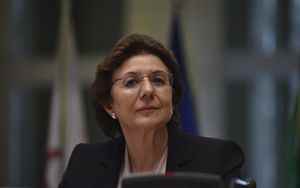(Finance) – The share of Italians who would like the introduction of financial education both in schools (from 86.5% to 89.1%) and in the workplace (from 76.5% to 79.5%) increases . Furthermore, one in ten Italians knows that there is a national strategy for financial education. This is what emerges from the Edufin 2022 Report “Financial education: guidance tool in times of uncertainty” created by the Edufin Committee in collaboration with Doxa and presented today in Rome on the occasion of the final day of the fifth edition of the Financial Education Month (# OctoberEdufin2022).
The Report also notes that about 67% of the population knows about effects of inflation on purchasing power. However, the percentage of people with a high level of financial knowledge remains low (just 44.3%), especially among the youngest (only 30.5%), who, precisely because of this low literacy, show a propensity towards riskier investments. In general, a large gap emerges between people’s perception of knowledge and their actual knowledge. On social security issues, for example, more than 50% of respondents say they know approximately the longevity risk and the functioning of the first pillar of public welfare, but the percentage of those who actually know these concepts and how they work is much lower.
Between the main factors of household financial stress the increase in the prices of food and energy goods, the fear of not having sufficient savings to face emergencies and fluctuations in the financial markets are evident. In addition, inflation, war and market fluctuations affected respondents’ expectations and investment intentions. Both a lower willingness to invest, especially in the riskiest forms, and a great disorientation about which decisions to concretely take, which takes the form of maintaining the status quo, emerge. Even the importance recognized to the issue of sustainability is slow to translate into investment choices oriented towards sustainable financial products, but it seems to have a great impact in terms of increasing future investment intentions.
“Financial education is essential to build the collective future, not just the individual – underlines the director of the Edufin Committee, Annamaria Lusardi – and is linked to the country’s financial stability. For this reason, fragmented initiatives are no longer sufficient, but it is necessary to provide large-scale programs to increase the financial, insurance and social security knowledge of Italians, with specific training offers for the most vulnerable groups of the population, such as young people and women. And we need to start with financial education as soon as possible. This is why we are here today at the Explora Museum in Rome. Let’s start with the young, and let’s do it immediately “.
